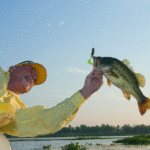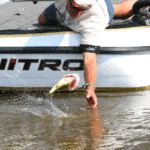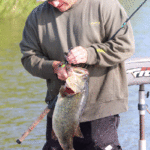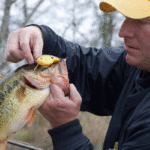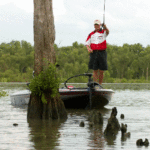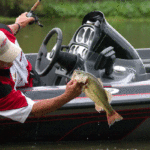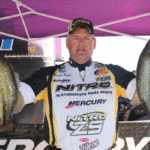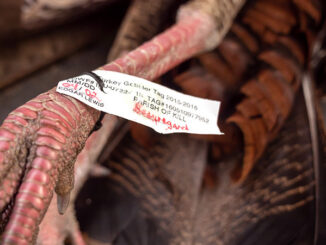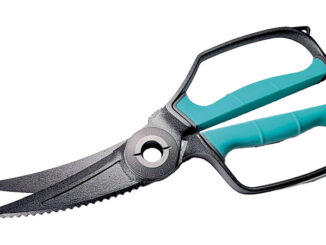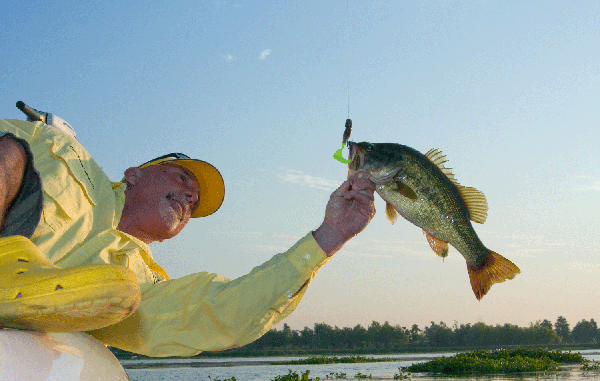
Follow these anglers’ advice, and you may just be heading to the bank with a $10,000 check this month.
On the morning of March 10, anglers with great expectations will launch on either side at Doiron’s Landing in Stephensville hoping to land a heavy enough bag of bass to make the top 20 cut to fish the second day of the Louisiana Sportsman Open Bass Championship presented by Skeeter and Yamaha.
The top 20 teams will slug it out on March 11, as they fish their way toward the guaranteed $10,000 first-place prize.
With so much on the line, tournament contestants are sure to put in their time on the water during the weeks leading up to the event to try to find that one dead-end canal they believe holds enough quality fish to push them to the top spot.
To make the search for the perfect pattern a little less daunting, Louisiana Sportsman sought out two tournament anglers who regularly fish Lake Verret and the Atchafalaya Basin, but because of prior commitments, won’t be able to fish the tournament.
Because they didn’t have to keep any information close to their vests, local Randy Rader from Bayou Vista and long-time Louisiana tournament angler Jason Pittman from Covington were more than forthcoming in their assessment of how the Louisiana Sportsman Open might play out.
Rader has been fishing the BASS Weekend Series tournaments since 2005, and he is the president and founder of the Atchafalaya River Rats bass club. He has regularly fished bass tournaments out of Doiron’s Landing since he moved to Bayou Vista from Houma in 1999.
Pittman has traveled the nation fishing the BASS Open tournaments since 1996, and after a five-year Katrina-influenced hiatus, he’s back fishing the 2012 BASS Southern Opens. Whether he was fishing professionally or not, Pittman has always been a fixture in most regional tournaments that fish Lake Verret and the Atchafalaya Basin.
Both anglers agree that the most important decision tournament teams are going to face will be whether to launch to the east or to the west. And that decision for most will be based on the Atchafalaya River gauge at Morgan City.
A 4-foot or higher reading on that gauge is going to put most anglers in the line to launch to the east at Doiron’s because the Lake Verret side is a much more stable area than the Atchafalaya Basin side to the west.
“When that river comes up, the bass on the west side spread out pretty far,” said Rader. “Verret has more of a levee and bank system because of the oil-field canals. In other words, it’s easier to find the bank on the east side if the river is high on the west side.”
Pittman agreed that because the Atchafalaya River doesn’t run into the east side Lake Verret wold be the place to be if anglers are faced with a lot of rain right before the tournament.
“Since you don’t have the river flooding into it or making it rise or fall hard, Lake Verret doesn’t get messed up nearly as quick,” Pittman said. “It’s more tidal influenced on that side, and about the only thing that can mess it up is a strong north wind pushing the water out.”
A 4-foot reading at Morgan City is flood stage in the Basin. That means you’re going to start losing bank on that side, and when you lose bank in the spillway, bass can scatter anywhere. They could go into the swamp, and you would never see them until the water falls out.
“That’s good for the fish but bad for the fishermen,” Pittman said. “Most people launching on the west side will probably want a reading of about 2.5 to 3 feet at Morgan City. That would be ideal for the west side, and a little fall would help.”
Other than the Atchafalaya River level, another variable that is sure to have an effect on this event is what stage of the spawn bass are in at the time of the tournament. With water temperatures already hitting the upper 60s and low 70s as recently as the first week of February, bass could be completely finished spawning, or the last wave of spawning could hit the beds the first week of March.
Rader believes many of the fish might be finished spawning, which would decrease the overall weights a little since the larger females would have already deposited their eggs on beds.
“I would think most of the bass will be postspawn by then based on our warm winter,” he predicted. “That might make them a little harder to catch for some teams because bass are going to be in that postspawn mentality and trying to recover. Somebody’s going to figure out how to catch them, though, so I think the biggest effect would be the lower weights.”
On the other hand, Pittman believes March 10 and 11 might set up perfectly for the last wave of spawning fish that would usually move up in April. The tournament days will be just a day or two behind the March full moon, and that could push the last of the spawning fish into the dead-end canals.
“There are waves of fish that usually spawn from February to April,” Pittman said. “We had a small spawn at the Pearl River in January — I saw lots of empty beds — so I’m assuming the Basin and Verret had a small spawn in January, too. February will have another wave of them, and the tail end should be around that moon in March.”
Neither angler sees much difference between the Verret side and the Basin side in regards to the patterns that should put winning fish in the boat. The only exception might be that a Rogue may come into play a little bit more on the east side.
Soft plastics should dominate the east and west sides with junebug and watermelon red Baby Brush Hogs, Speed Craws and Sweet Beavers probably getting the lion’s share of work. Spinnerbaits, small crankbaits and maybe even chatter baits could also be productive.
“But the wildcard with the warm water is going to be who can find that buzz bait bite in the drains and catch a big fish quick,” Pittman said. “Catching that big kicker fish is what’s going to help somebody make the top 20.”
Pittman referenced a recent tournament out of Doiron’s that was won by an angler with right at 15 pounds. He had a solid limit of fish, but he had a 6-pound bass to go with four 2-pounders. In the Louisiana Sportsman Open Bass Championship, a buzz bait just might be the ticket for that extra 6-pound fish.
Since both anglers thought the dead-end canals would be best for this tournament, the key to making the cut will be putting in the time to find the canal that’s holding 3- and 4-pound fish and hoping for a 5-pound kicker.
“There have already been some good stringers caught out of the Shell Canals on the Basin side,” Rader said. “And then you’ve got Bateman, Belle Isle and somebody might make a pretty good run to Quintana over to the west a bit.”
Pittman pointed out the Crackerhead Canals on the Verret side as well, but he thought the key might be to find a dead-end canal on either side that wasn’t such a community hold. He pointed out that it’s also very likely that some teams might run to Bayou Black or maybe even Cataouatche.
“You know everybody’s going to have last year’s Bassmaster Classic in the back of their mind while they’re gearing up for this tournament,” Pittman said. “It’s an hour run, give or take a little depending on boat traffic, but if somebody’s willing to test their equipment and make that run, they could come back with a big reward.”
When he found out that anglers wouldn’t be limited to fishing above Highway 90, Pittman pointed out that this tournament could very well come down to a marsh versus swamp event.
Although there are some good teams that could make it happen in the marsh, Pittman thought the quality of bass needed to make the cut and win the tournament would come from the swamp rather than the marsh.
“Typically you get quantity in the marsh and quality in the swamp,” he said. “I’m thinking with a team tournament and this much money on the line, people are going to put in the time to find concentrations of good fish. I predict 18 pounds a day to win it with 36 total — well, 33 to 36 for two days. That’s if nobody makes the run to Cataouatche. If somebody does push it that far, then all bets are off.”
Great expectations are fine, but they can fall flat in the face of reality if teams fishing the Louisiana Sportsman Open Bass Championship don’t make the right decisions at the right time.
The first decision is deciding on which side of Highway 70 to launch. Get that one right on Saturday morning, and you just might get to fish on Sunday.
